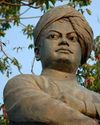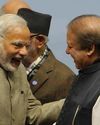Gandhi’s greatest achievement was to be able to mobilise vast masses of people for non-violent struggle, but do his thoughts and actions still impact today’s political scenario?

MOHANDAS Karamchand Gandhi’s political legacy is more preserved in worship than in practice. He has been deified, put on the currency notes (wherewithal for black money deals) and largely ignored but for two days of the year— October 2, his birthday, and January 30, the day of his demise.
Gandhi’s legacy is hard to separate from his living presence. He was able to do many things by the sheer force of his personality. For 20 years, between 1920 and 1940, he led the Congress with an iron hand. Grown-up men and women agreed to suspend their judgment and critical faculties and followed him, believing that he will deliver independence. In the final phase, 1940 to 1948, his influence began to wane. When independence came, Congress leaders agreed to the Partition against his best wishes. He had to fast against the new Congress government to get justice for Pakistan. Unlike when the British ruled, there was no longer universal sympathy for this gesture. He was killed by a fellow Hindu.
Gandhi’s greatest achievement was to be able to mobilise vast masses of people around a message of non-violent struggle. These struggles were unarmed, but they were never as non-violent as he wanted them to be. This was to lead to shifts in his tactics over the years. In a timorous people, he planted the idea of political action by way of non-violent protest even at the personal risk of physical injury from police violence and jail.
This story is from the October 2016 edition of Swarajya Mag.
Start your 7-day Magzter GOLD free trial to access thousands of curated premium stories, and 9,000+ magazines and newspapers.
Already a subscriber ? Sign In
This story is from the October 2016 edition of Swarajya Mag.
Start your 7-day Magzter GOLD free trial to access thousands of curated premium stories, and 9,000+ magazines and newspapers.
Already a subscriber? Sign In

Refuging Progess
There is a well-orchestrated global conspiracy to deny scientific and technological developments from the West to Third World countries.

The Monk Of Science
Vivekananda believed that Religion should be subjected to scientific methods of investigation. The third and concluding part of our series on the Swami and his views on science.
The Next Step
Indian technical manpower can be trained for high-value-added emerging services in the era of mass commoditisation of hardware.
The Threat Of Autarchy
The force of globalisation is an irreversible reality, and it is countries like India and China that will nurture it going forward.

Neanderthals: The Womb Of Caves
Recent discoveries indicate that Neanderthals may have had a rich inner life, including symbolic thought. Indeed, they may have been the progenitors of human religions.

Getting India's World Right
Incremental concessions will get India nowhere with Pakistan and China. What we need is a classically conservative foreign policy, based on realism.

The Hesitant Orbit
In order to march boldly ahead into the deep space, New Delhi must work towards building a station, boost its techno-economic planning and use the Indian Space Research Organisation smartly.

Nudges And Narratives
The debate surrounding Sanjay Leela Bhansali’s Padmavati brings India a complex network of portraits within a cultural world-system.

The Spell Of Specialisation
THE INDIAN ADMINISTRATIVE SERVICE NEEDS AN URGENT REJIG. THE KEY TO SPEED AND EFFICIENCY LIES IN PUTTING AN END TO A GENERALIST APPROACH AND IN GOING FOR A NEW SERVICE.
The Great Gamble
With demonetisation, the prime minister has taken a huge risk— both economic and political. He must succeed, because this move could transform both our economy and our society.